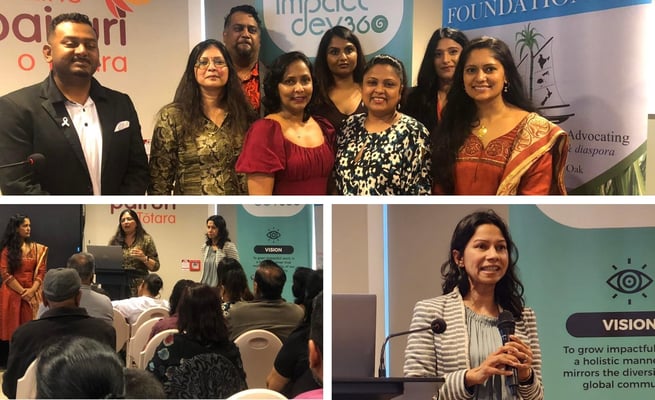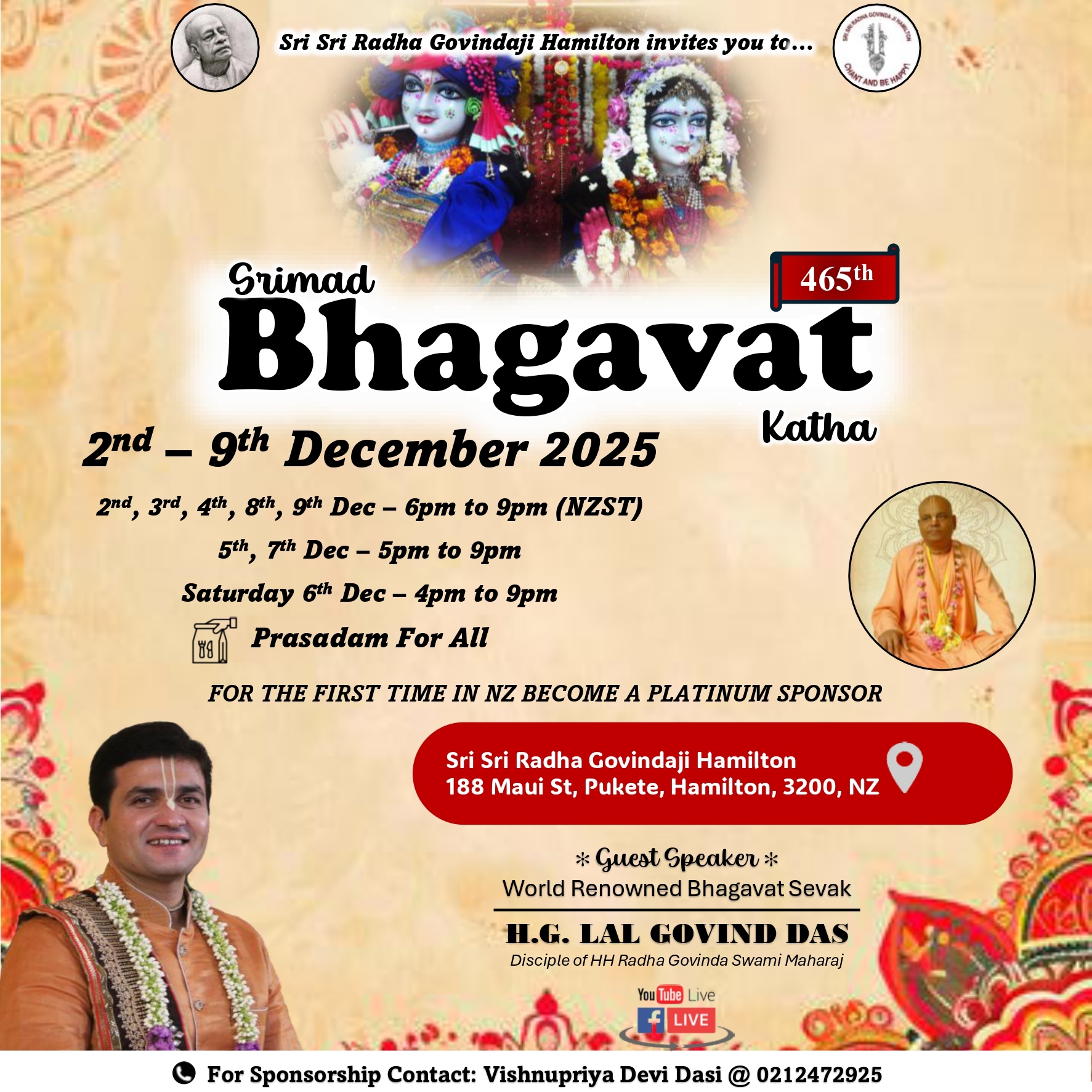A heart to heart with Fiji's Girmitiya community

Matters of the heart was top of the agenda of a Fiji Girmit community gathering in Auckland last weekend.
"Dil Ke Baat" - Let's Talk About Heart Health - brought together more than 100 members of the Fiji Indian community at the Totara Hospice Conference Centre in Manurewa.
Led by Auckland academic Dr Pritika Narayan, the initiative explored the hypothesis whether the traumas suffered by Fiji's Girmitiya population during their indenture could have contributed to health issues faced by the community today.
More than 60,000 indentured labourers were brought to Fiji from India starting 1879 to work in the sugar cane plantations, enduring extreme hardship in a foreign land.
Other key speakers at the gathering - jointly organised by Impactdev36 and Fiji Girmit Foundation NZ - included academics Associate Professor Rita Krishnamurthi and Professor Rinki Murphy.
Narayan spoke about Girmitiya population heart health in the context of history, the 41 years of famine that persisted through the indenture, particularly for women and their babies forming in the womb.
"Did such environmental exposures drive adaptive changes, promoting survival in a starvation context?" Narayan's questioned in her presentation.
"Are these same changes now maladaptive in a context of abundance with easy access to food, and significantly less manual labour?
"Are those adaptive changes now linked with metabolic disease risk such as diabetes, heart disease, kidney disease, thyroid dysfunction?"
Narayan said it was a "beautiful opportunity to connect with the Girmit community, sharing stories and talanoa and working towards solutions focused on what thriving heart health can look like for our future generations".
Krishnamurthi spoke about the vulnerability of vessels that supplied blood and nutrients to the brain.
"When damage to these vessels occurs, these same ABCs are at play and can lead to a stroke," Krishnamurthi said in summary.
Murphy shared the ABCs of high blood sugar on heart health (A = short for A1c, the carrier for sugar in our blood and critical marker in annual check-ups for men over 30 years and women over 40 years of age. B= blood pressure and C= cholesterol).
"These ABCs are inextricably linked with our heart health."
Murphy described high blood sugar in our vessels as rust to pipes.
"You may not see the damage immediately, but over time the effects can be catastrophic."
Attendees also took part in a vibrant question and answer session, all followed by snacks and chai.
Krish Naidu, Fiji Girmit Foundation NZ national president, praised the initiaitve of the academics in highlighting the issues and also the Girmit community for taking time to take part in the discussion.
"Cardiovascular disease is a major cause of death amongst our Fijian Indian community globally," Naidu said.
"It’s pleasing to see our own people are taking interest in research which impacts our people negatively.
"We need more of our people in such space who understand the unique migration journey, culture, lifestyle, trauma and linguistic diversity of our community."
* While many Girmitiyas returned to India after serving their indenture, many chose to stay back and call Fiji their home, working and contributing to the Fiji economy and overall growth. The term "Girmit" is coined from the word "agreement" - the binding document between the workers and the British. They are collectively referred to as "Girmitiyas".
Matters of the heart was top of the agenda of a Fiji Girmit community gathering in Auckland last weekend.
"Dil Ke Baat" - Let's Talk About Heart Health - brought together more than 100 members of the Fiji Indian community at the Totara Hospice Conference Centre in Manurewa.
Led by Auckland academic...
Matters of the heart was top of the agenda of a Fiji Girmit community gathering in Auckland last weekend.
"Dil Ke Baat" - Let's Talk About Heart Health - brought together more than 100 members of the Fiji Indian community at the Totara Hospice Conference Centre in Manurewa.
Led by Auckland academic Dr Pritika Narayan, the initiative explored the hypothesis whether the traumas suffered by Fiji's Girmitiya population during their indenture could have contributed to health issues faced by the community today.
More than 60,000 indentured labourers were brought to Fiji from India starting 1879 to work in the sugar cane plantations, enduring extreme hardship in a foreign land.
Other key speakers at the gathering - jointly organised by Impactdev36 and Fiji Girmit Foundation NZ - included academics Associate Professor Rita Krishnamurthi and Professor Rinki Murphy.
Narayan spoke about Girmitiya population heart health in the context of history, the 41 years of famine that persisted through the indenture, particularly for women and their babies forming in the womb.
"Did such environmental exposures drive adaptive changes, promoting survival in a starvation context?" Narayan's questioned in her presentation.
"Are these same changes now maladaptive in a context of abundance with easy access to food, and significantly less manual labour?
"Are those adaptive changes now linked with metabolic disease risk such as diabetes, heart disease, kidney disease, thyroid dysfunction?"
Narayan said it was a "beautiful opportunity to connect with the Girmit community, sharing stories and talanoa and working towards solutions focused on what thriving heart health can look like for our future generations".
Krishnamurthi spoke about the vulnerability of vessels that supplied blood and nutrients to the brain.
"When damage to these vessels occurs, these same ABCs are at play and can lead to a stroke," Krishnamurthi said in summary.
Murphy shared the ABCs of high blood sugar on heart health (A = short for A1c, the carrier for sugar in our blood and critical marker in annual check-ups for men over 30 years and women over 40 years of age. B= blood pressure and C= cholesterol).
"These ABCs are inextricably linked with our heart health."
Murphy described high blood sugar in our vessels as rust to pipes.
"You may not see the damage immediately, but over time the effects can be catastrophic."
Attendees also took part in a vibrant question and answer session, all followed by snacks and chai.
Krish Naidu, Fiji Girmit Foundation NZ national president, praised the initiaitve of the academics in highlighting the issues and also the Girmit community for taking time to take part in the discussion.
"Cardiovascular disease is a major cause of death amongst our Fijian Indian community globally," Naidu said.
"It’s pleasing to see our own people are taking interest in research which impacts our people negatively.
"We need more of our people in such space who understand the unique migration journey, culture, lifestyle, trauma and linguistic diversity of our community."
* While many Girmitiyas returned to India after serving their indenture, many chose to stay back and call Fiji their home, working and contributing to the Fiji economy and overall growth. The term "Girmit" is coined from the word "agreement" - the binding document between the workers and the British. They are collectively referred to as "Girmitiyas".









Leave a Comment